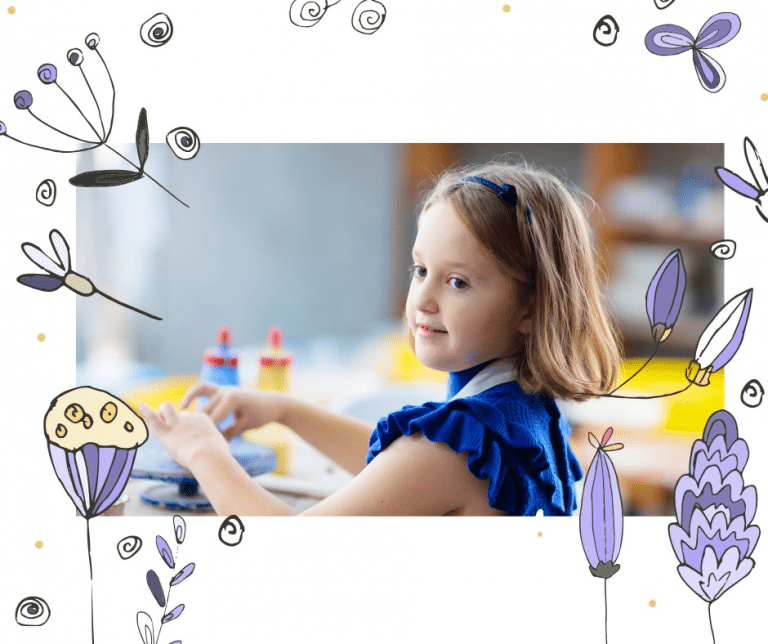Confidence Builders: Nurturing Independence in Early Learners
Confidence Builders: Nurturing Independence in Early Learners

As parents, we want our children to grow up with a positive self-image and a strong sense of independence. However, these qualities are not innate and need to be nurtured from an early age. Building confidence in our young learners is crucial for their overall development and future success.
Where does confidence come from?
Confidence is a multi-faceted trait that can arise from various sources and experiences. Both internal and external factors influence it. Here are several factors that contribute to the development of confidence:
- Success and Achievement
- Positive Feedback and Recognition
- Competence and Mastery
- Setting and Achieving Goals
- Embracing Challenges
- Self-reflection and Awareness
Independence plays a crucial role in fostering confidence in children. When children are encouraged to be independent, they develop a sense of autonomy, self-efficacy, and a belief in their ability to overcome challenges.
Top tips to help you foster independence and confidence in your children

Here are some strategies for fostering confidence in preschoolers:
1. Give them a few (limited) options.
Offering preschoolers a few (limited) options can have several benefits, contributing to their development and fostering a sense of independence.
Choosing between a few options allows children to practice decision-making skills. It helps them understand the concept of making choices and the consequences of their decisions.
Providing choices within limits can reduce power struggles. When preschoolers have some control, they may be more willing to cooperate with caregivers, leading to smoother interactions.
2. Letting them perform easy tasks
Research suggests that assigning tasks to children in their early years can positively impact their academic performance, social skills, and self-confidence by the time they reach third grade.
Starting with simple chores like putting away toys and clearing the table may initially face resistance and require more effort, but the long-term benefits far outweigh the challenges.
3. Resist from taking control.
Have you ever noticed how preschool educators patiently let children figure out how to complete challenging activities independently? You can adopt this approach and give your kids additional time to learn how to tie their shoelaces or open a snack package. With more opportunities to work independently, their level of self-sufficiency will improve.
4. Highlight their accomplishments
When you ask your child for assistance with a task, it’s important that you praise their efforts to help boost their self-esteem. When complimenting children, it’s best to focus on their work rather than their attributes. For instance, instead of saying, “You’re such a talented baker!” say, “You’re getting so good at making muffins because you keep practicing”. Studies have shown that the latter approach can be more effective in building children’s confidence, while the former can backfire and make them feel guilty when they fail.
5. Create a Safe and Supportive Environment
Parents should create a secure physical environment to ensure that toddlers can explore their surroundings safely and confidently. This will enable them to try new activities and develop a sense of mastery.
It is essential to support toddlers in expressing their needs and feelings by encouraging open communication. This will help them feel understood and valued, ultimately promoting a sense of self-worth.

CONCLUSION
It is essential to strike the right balance between encouraging independence and offering sufficient support and guidance to foster a child’s growth and self-esteem. To build confidence, a multifaceted process is required to create an internal sense of self-belief, seek external support, and participate in positive experiences that reinforce one’s strengths and abilities.
Mulberry School Tour
Our Locations
Click here to visit our Contact Us page and view the preschool/infant care centres conveniently located near you.
CONNECT WITH US
USEFUL LINKS
About Us
Mulberry Learning prides itself on making the preschool experience both memorable and enjoyable while transforming a child into a competent explorer, an imaginative thinker, and a creative problem solver. Through our proprietary award-winning curriculum, unique Habits of Mind programme and dedicated staff who are passionate about imparting positive attitudes, Mulberry Learning holds strong in its promise to deliver a holistic education that nurtures the Future Ready Child.
A PREMIUM PRESCHOOL BRAND UNDER GLOBAL EDUHUB


